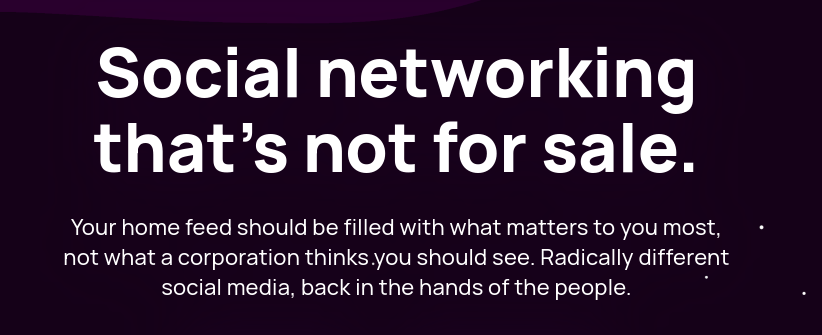Triggered by Musk's takeover, people are leaving Twitter in droves and switching to Mastodon. This might mark a turning point in the development of free social networks. In order to be attractive to users a social network needs to have a certain size, otherwise it is boring. This Network Effect cemented the quasi-monopoly of the current social networks. With the growing popularity of mastodon we have a chance to break this monopoly and establish a free alternative.
This could be a Turning Point in the Development of Free Social Networks

In the end a free network has some real advantages for users. It gives them more control and can ad-free. Once such a social network is established it can function as the backbone of many different services. The ActivityPub protocol that is a W3C Standard and is the backbone of mastodon is a rather simple one and so can be implemented by a lot of services that work on top. (E.g. think of chat-rooms in games, etc, etc, ..)
But there are also enormous challenges. A centrally managed service like Twitter or Facebook is much easier to build then a distributed, federated network. Once the netowork reaches a certain size, the main challenge will be to prevent SPAM and the quality of moderation. The decentralized nature of the system makes it hard on the one hand but also easier: If certain instances will not do it well then people will migrate to other instances which do it better.
If this works out well enough then the Network Effect could bring the end of commercial social networks. Not only twitter but FB and others might follow - once the network is there it can create a dynamic of its own.
As with Free Software/Open Souce in general: Even commercial companies might have to join these movment. For companies who do not run their own social network (e.g. Google failed to establish its Google+ Network) it might be tempting to help in bringing down the rivals. Yet, companies that rely on Ad-Revenue (as Google does) the prospect of an Internet without advertising might seem to dangerous.
Once Aspect to consider is all that is that of privacy. Twitter was built mainly to make say things publicly. It was the global agora. Of course people also need private channels. Currently mastodon does not use encryption to protect private messages or posts that are only meant for a limited audience. Currently it seems the best solution for private communication in small groups seems to be matrix/elmenent/riot. This is also a decentralized open source network but more for like chat rooms and with a strong focus on privacy and security.
But with the success of mastodon I would expect that soon viable bridges between these open source projects will be available. (There exist already some forms of bridges).
Anyways. If we all try hard and work together we can end the era where the social networks where dominated by mega-corporations and make an important step into the direction of a free and open world with a commons based cooperative mode of production.
What are the practical things you could do?
- Use Mastodon, Matrix and other open source, decentral systems yourself.
- Recommend them to your Friends, Families, Co-Workers and everyone that you know on the commercial, legacy social networks.
- Help them to do their first steps here.
- Try to create a friendly and welcomming atmosphere in the new networks
- Lobby for public funding of open and decentralized networks
- Lobby to outlaw online-advertising altogether
Also see Warum Facebook zerschlagen nicht reicht - Was tun um die Macht der Techkonzerne (German)
Franz Schäfer (Mond), November 2022